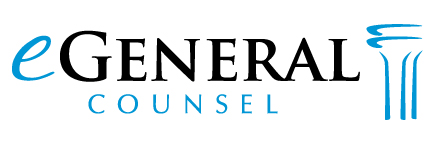The Jumpstart Our Business Startups Act (the JOBS ACT) has made it easier for companies to use websites and web portals to raise capital through the sale of stock or other forms of equity over the Internet. Two distinct methods for capital raising are made available by the JOBS Act: equity crowdfunding sites and portals, and accredited investor sites. I have found that there is a lot of confusion concerning the differences between the two, which I hope this article will clarify.
Accredited Investor Sites and Portals
Before the JOBS Act, it was difficult for a start-up or established company to set up a web site to raise capital by offering stock without violating the U.S. securities laws. This was because a private placement of securities required the issuer to refrain from general advertising and general solicitation. Any type of overt advertising (such as a publicly viewable web site) or general solicitation (such as a blast email campaign) was not permitted. “Matchmaking” sites that screened potential investors and then allowed them to view listings by companies seeking funding were only allowed in narrowly limited circumstances, and then only for accredited investors. Since accredited investors must have net income of at least $200,000 or a net worth (excluding their primary residence) of at least $1,000,000, most potential investors were eliminated.
As I discussed in an earlier article on General Solicitation under the JOBS Act, the SEC staff expressed concern about Internet matchmaking sites that were not affiliated with registered broker-dealers. The staff also expressed concern about sites where the prospective investor did not have to fill out a pre-screening questionnaire but only had to certify that he or she was accredited. However, the staff did not rule out these practices, and only affirmed that the absence or presence of general solicitation is always dependent on the facts and circumstances of each particular case.
Title II of the JOBS Act changed all this by directing the SEC to expand its private placement rules to allow general solicitation and general advertising if the offering is made solely to accredited investors and certain additional conditions were met. The SEC responded with modifications to its Rule 506 that became effective in September 2013. An article in this series discusses the new rule on private placements to accredited investors. Now, for the first time, issuers of securities may make a private placement to accredited investors with no restrictions on the advertising or solicitation methods used. There are, however, a few extra compliance matters in the new rule, such as the requirement to file copies of the advertising and solicitation materials with the SEC and heightened standards for determining the accredited status of the investors.
In the context of websites and portals for raising capital, a number of websites have sprung up to take advantage of the new rules, and more are expected to get into the business. Many of these portals had previously operated under the old rules, where advertising and general solicitation were not permitted. If these portals are to operate under the new rules, then their investor subscription process will have to be modified to comply with the heightened accreditation verification standards and disclosure requirements in the new Rules.
Equity Crowdfunding Portals
The relaxation of the prohibition on general advertising and solicitation applies only to offerings to accredited investors. To enable start-ups and other companies to make private offerings of stock and other securities to non-accredited investors, Congress, in Title III of the JOBS Act, created a new regime for equity crowdfunding. Under this new provision, equity crowdfunding transactions must be made either through a registered securities broker-dealer or through a “funding portal,” which is a website through which equity crowdfunding transactions may be consummated. These funding portals must meet a number of statutory requirements and must be registered with the Securities Exchange Commission (SEC).
In October 2013 the SEC published its long-awaited proposed rules implementing the equity crowdfunding provisions of the JOBS Act. The SEC staff is now accepting public comments on the proposed rules, and revised rules are expected to be published in early 2014, with the final rules taking effect later that year. Thus, funding portals can not apply for registration and commence business until the final rules become effective.
The JOBS Act and the proposed rules impose a number of limitations on equity crowdfunding portals and transactions:
$1,000,000 Limitation on Amount Raised
The amount of funds that a company may raise in any 12-month period is limited to $1,000,000.
Limitations on Individual Investments
The maximum amount that any person may invest in an equity crowdfunding transaction is limited to the following mounts:
- The greater of $2,000 and 5% of the annual income or net worth of the investor, if either the investor’s annual income or net worth is less than $100,000; and
- 10% of the annual income or net worth of the investor, not to exceed an investment amount of $100,000, if either the investor’s annual income or net worth is equal to or more than $100,000
Audit and Disclosure Requirements
- Names of officers, directors, 20% shareholders
- Description of business
- Financial information
- Purpose and terms of the offering
- Ownership and capital structure
The financial information must include reviewed or audited financial statements depending on the offering size:
- Up to $100,000: corporate tax returns plus financial statements certified by the principal executive officer of the company to be true and complete in all material respects
- $100,000 to $500,000: financial statements reviewed by an independent accountant
- More than $500,000: audited financial statements
These requirements will impose significant costs on companies using equity crowdfunding. The disclosure requirements will make the use of an experienced securities lawyer strongly advisable, and the review and audit requirements will require that the company hire an independent accountant at a not insubstantial cost.
Other limitations
- Companies may not advertise the terms of the offering except to direct investors to the funding portal.
- Compensation of finders is to be limited as provided in the SEC rules.
- A report of the results of operations and financial statements must be provided to investors and filed with the SEC at least annually.
- Liability for material misstatements and omissions is imposed on companies engaging in equity crowdfunding capital raises.
- Issuers, brokers and funding portals that have committed past securities violations and other infractions are prohibited from engaging in the equity crowdfunding transactions.
Conclusion
Because of the costs and restrictions imposed on issuers wishing to engage in equity crowdfunding transactions, it is unclear whether the reality will match the hype surrounding this new mode of capital raising for startups and other small companies. However, for the company that does not need more than $1,000,000 per year and is able to navigate the regulatory minefield established by the JOBS Act, equity crowdfunding may provide a viable alternative to the traditional private placement or a web-based placement directed solely to accredited investors.

